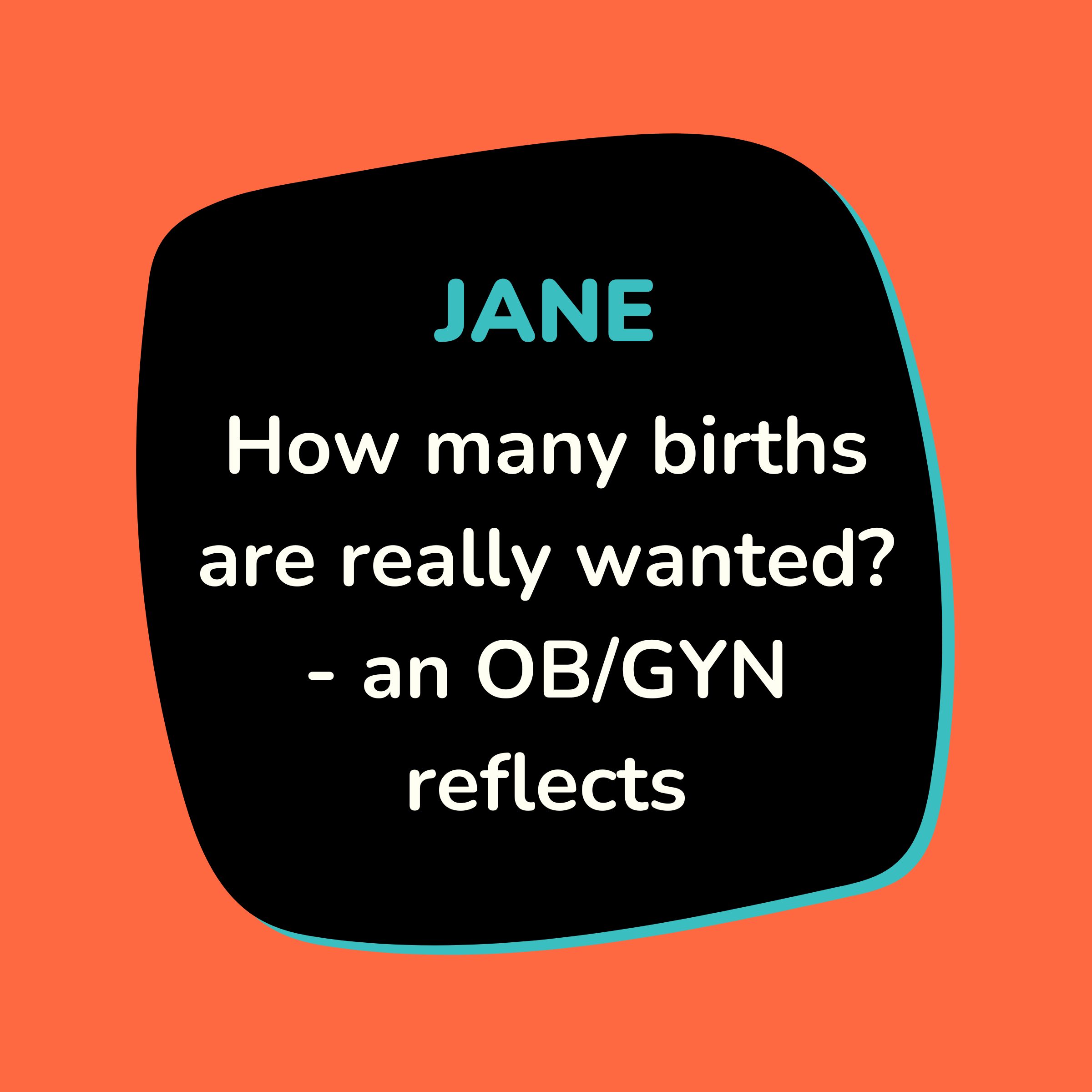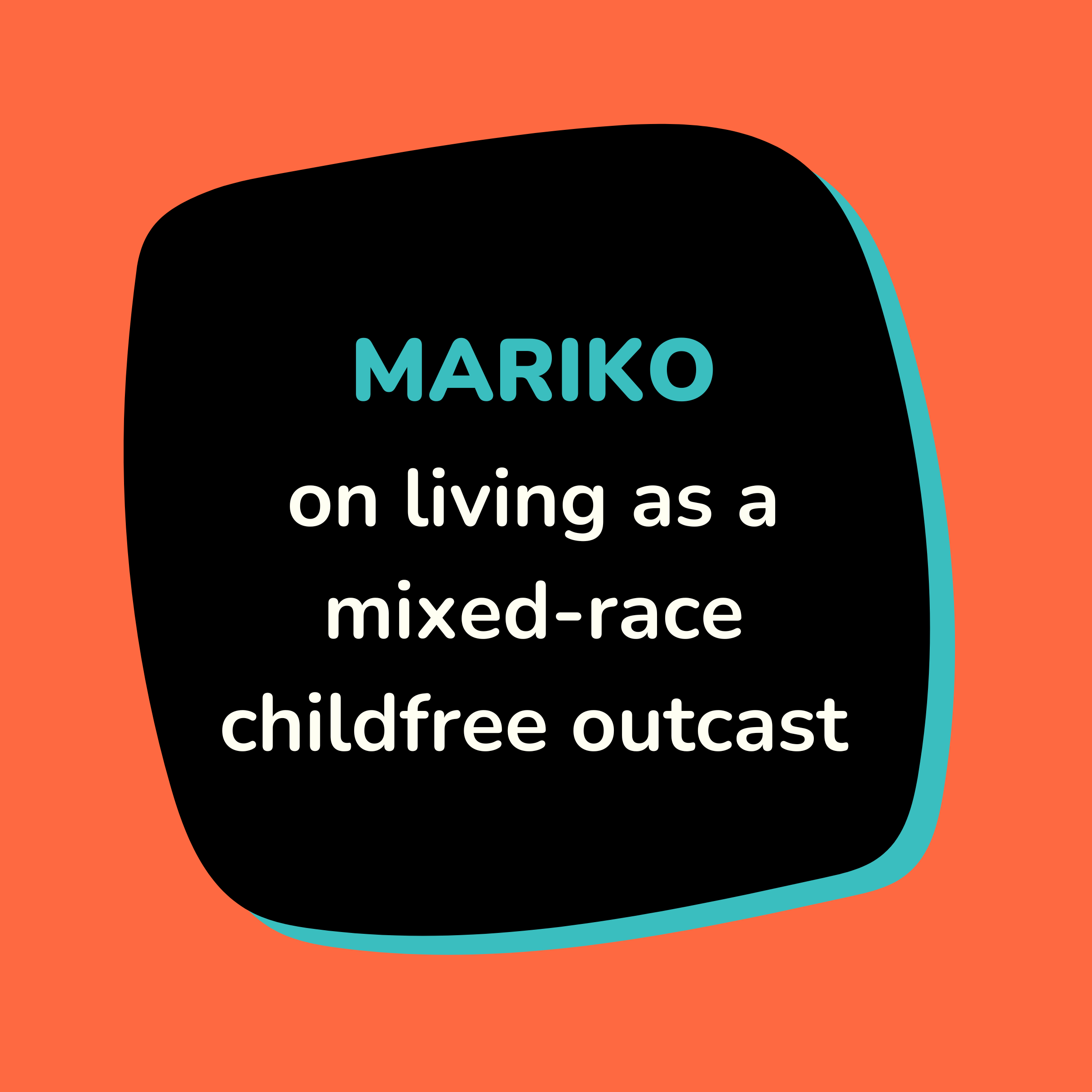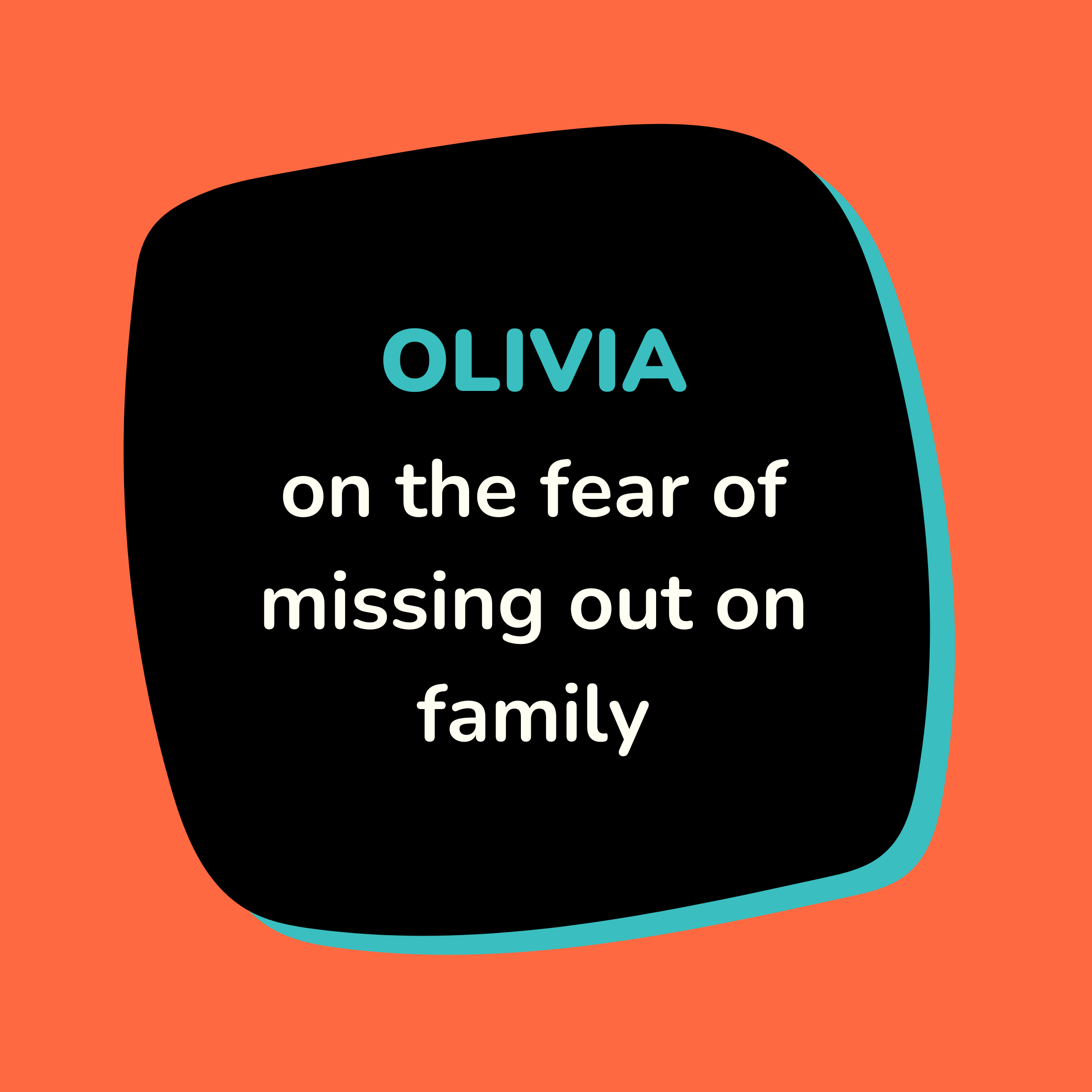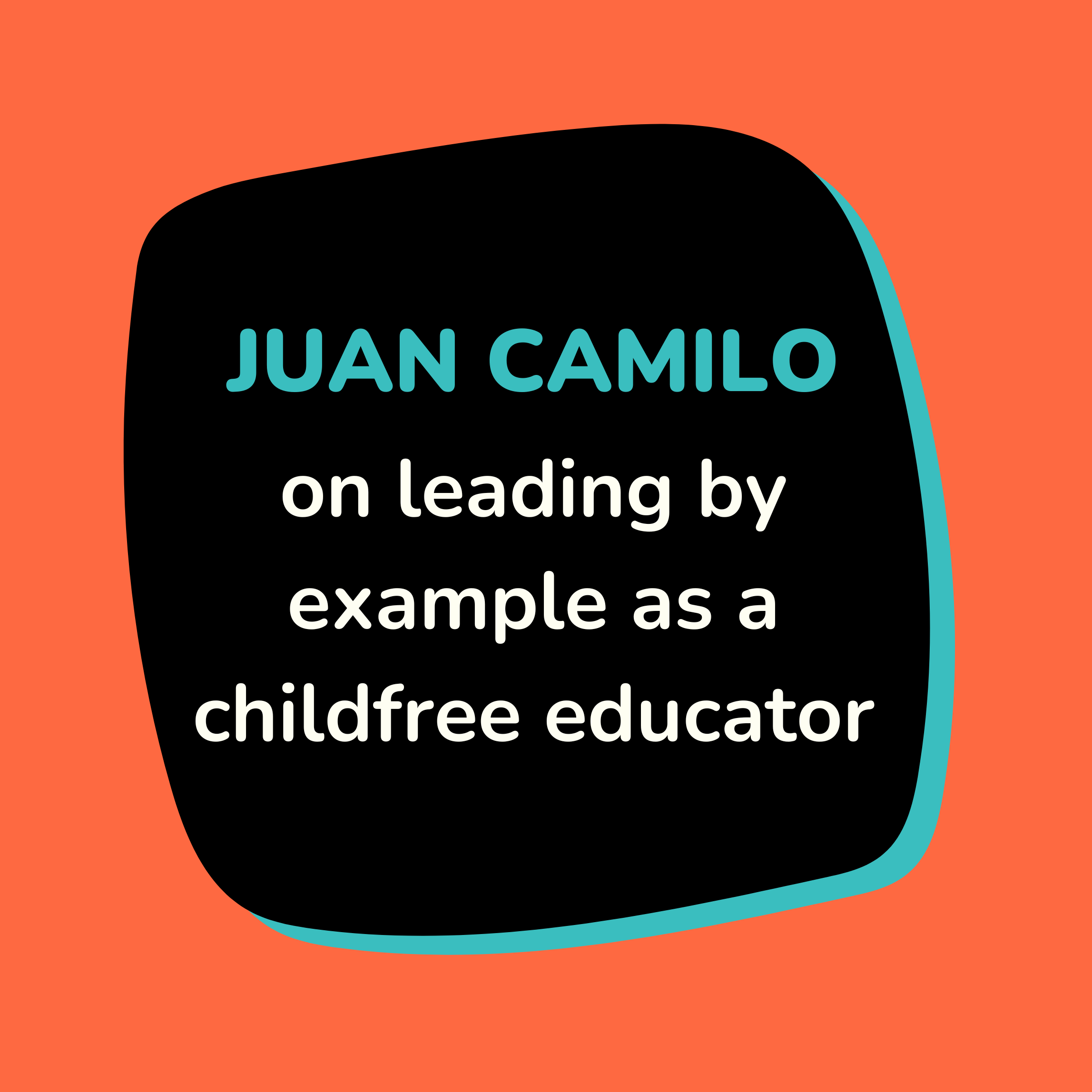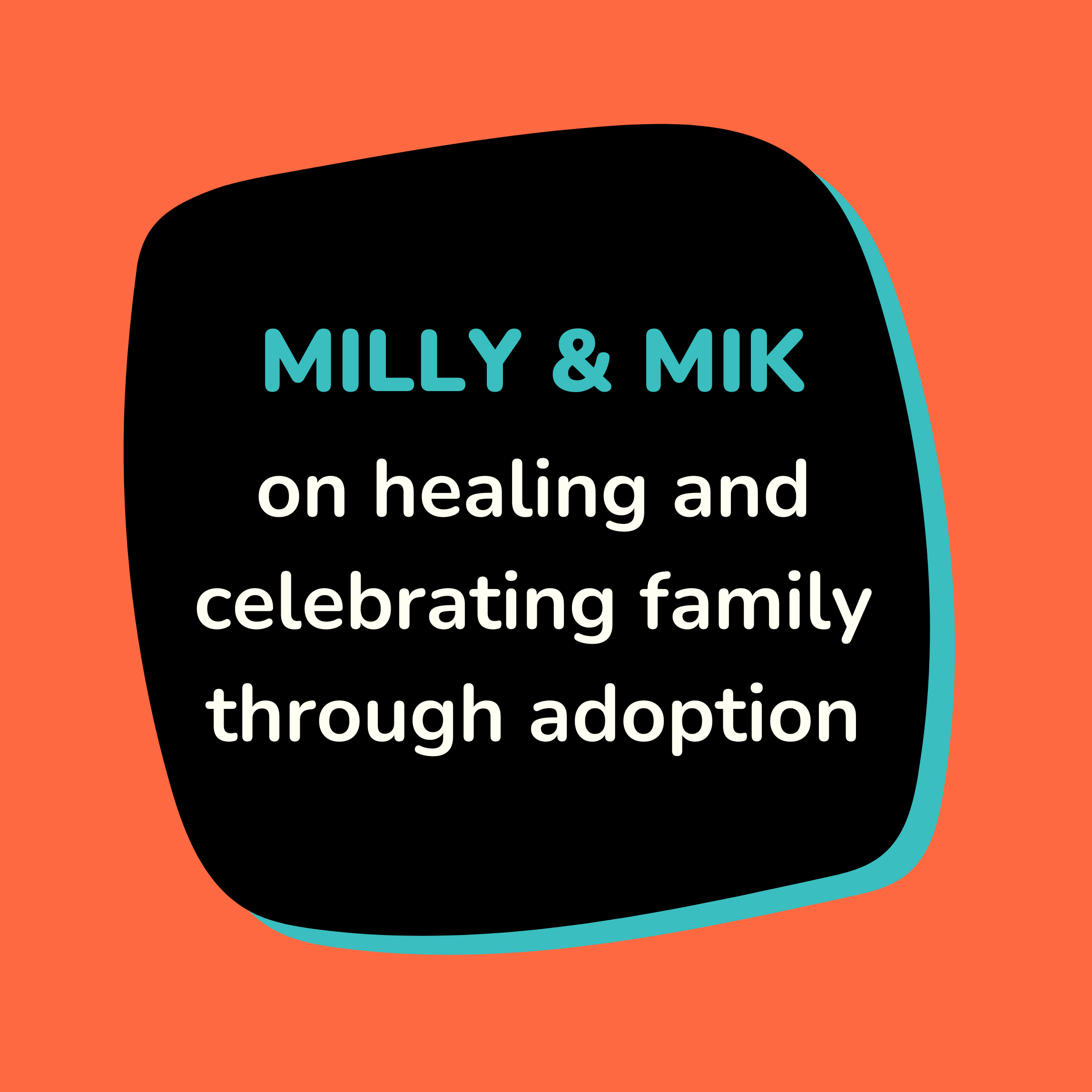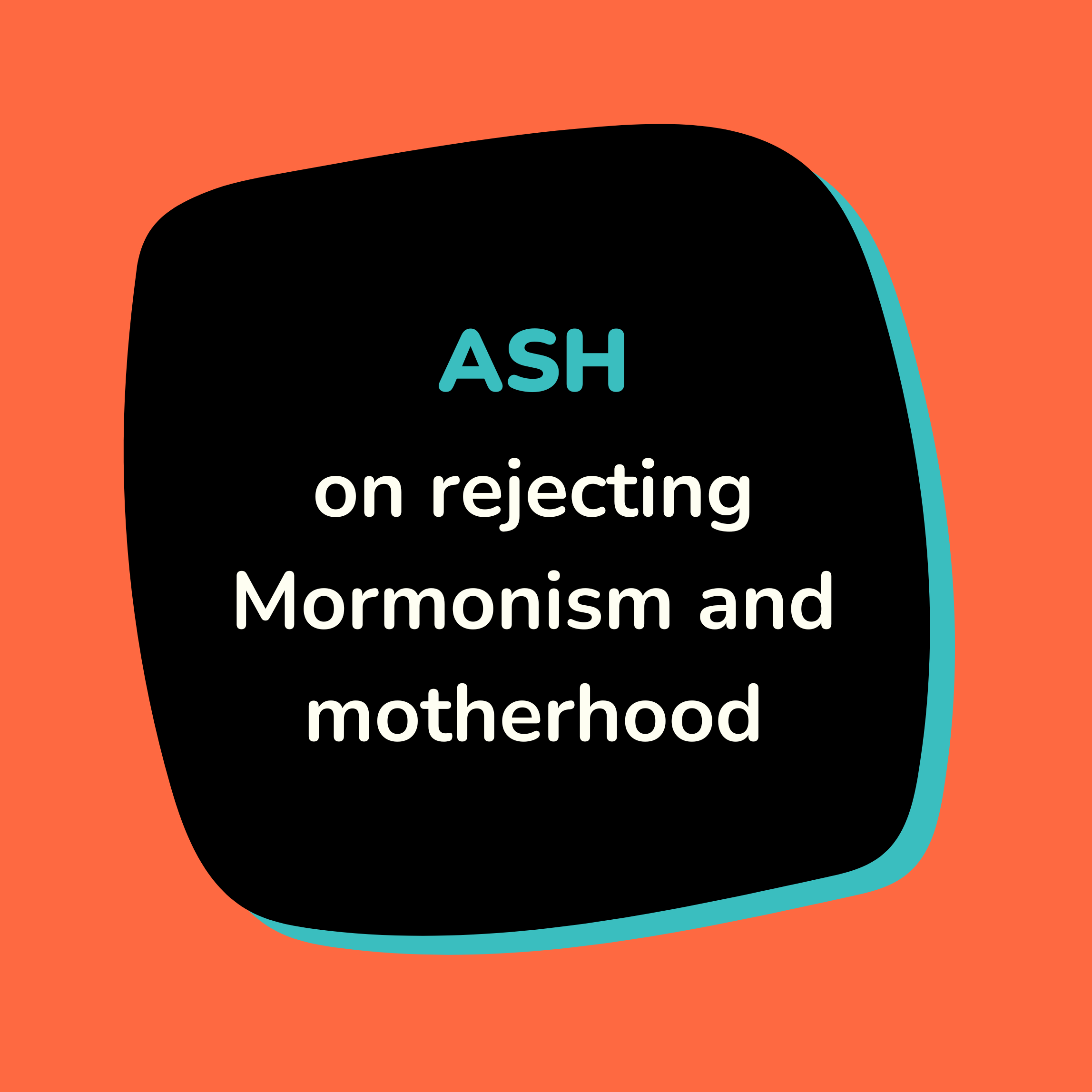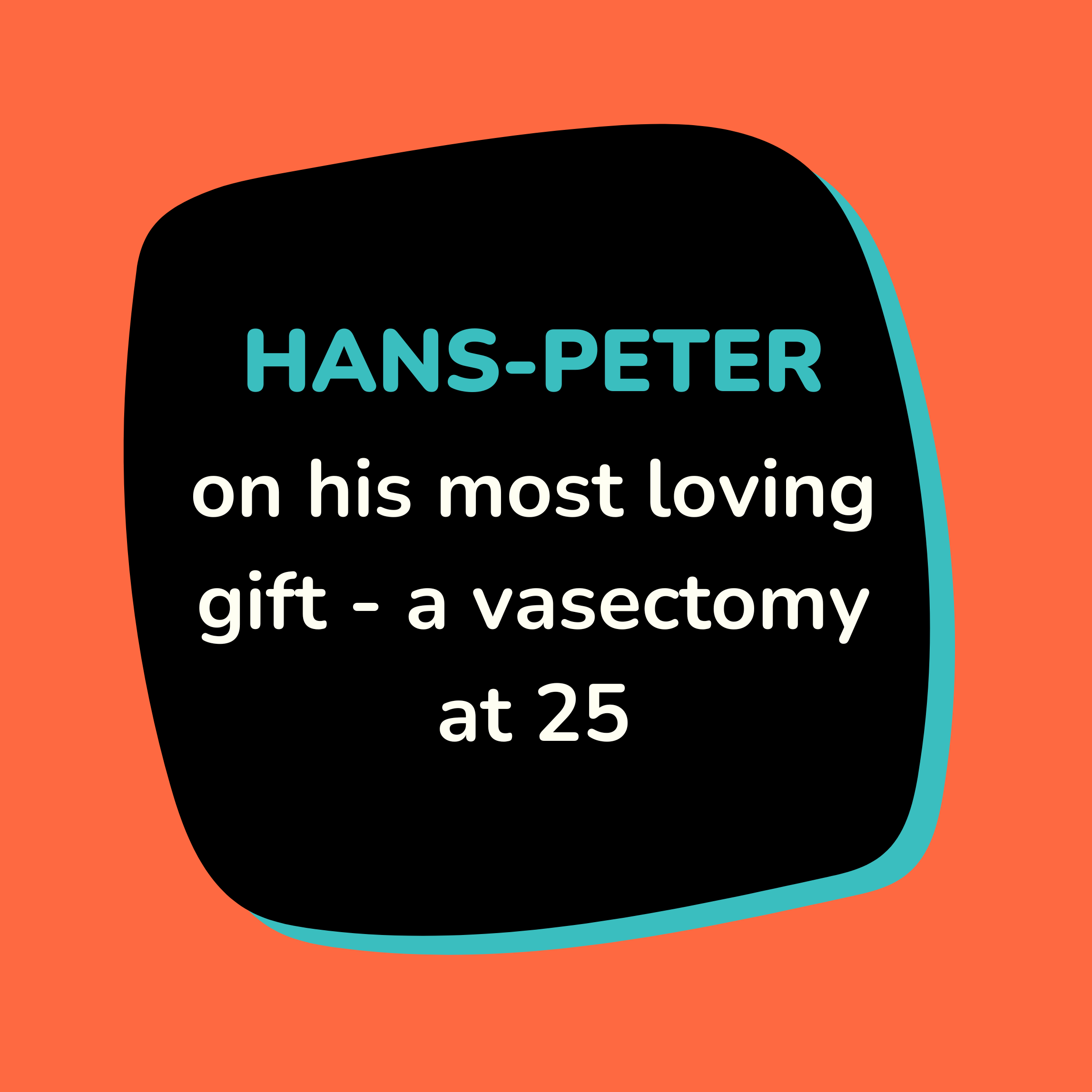Sara - on the relief of IVF failure
Due to a surgery in her 20s, Sara was unable to have children naturally. Her fear of regretting childlessness drove her to seek IVF in her late 30s, a journey that was physically, emotionally, and financially harrowing. Recognizing the relief she experienced after her treatments were unsuccessful, she realized that she had never wanted children and had just dodged a pronatalist bullet.
-
Sara 0:00
When I was 38 I was having a great life. I had a great job. I learned how to fly airplanes. I ran a marathon a month. I was having the time of my life. And it kind of hit me. I'm 38, I can't have a child naturally. And you know, the stats on in vitro - the older you get, the harder it is to get pregnant. So in my mind, I said to myself, as happy as I was, I don't want to have regrets in my life. And I think the regrets were really society telling me you have to have children.
Nandita Bajaj 0:49
That was today's guest, Sara. Hello everyone, and thank you for joining me on this journey. My name is Nandita Bajaj, and I'm the host of Beyond Pronatalism: Finding Fulfillment, With or Without Kids, an interview series in which, through intimate conversations with women and men from diverse backgrounds, I explore how they are courageously and creatively navigating pronatalism - the often unspoken pressures to have children, whether from family, friends, or the culture at large. In each episode, I dive into personal stories with people who are forging unconventional pathways to fulfillment, including redefining what family means to them, whether that means being childfree or childless, having biological kids, adopting or fostering children or animals, or creating close-knit communities of friends and loved ones. Hi, Sara. It's so nice to have you here joining me on the podcast. Thanks for being here.
Sara 1:50
Well, thanks for inviting me to speak about this important subject.
Nandita Bajaj 1:54
And your story is one that is so fascinating to me. We've talked about it several times, and I'm excited to have our listeners hear your amazing journey through this ideology of pronatalism. So let's go back a little bit in your history. You spent some time as a child in Saudi Arabia. You have some family connections there, and you have lived for the most part, in the US. And what I'd love to hear from you is some context around pronatalism, the social cultural pressures to have children, if you can offer some comparison to the Saudi culture and the American culture at large.
Sara 2:43
So my mom's side of the family is very Catholic. My grandmother came from 10 brothers and sisters, so the Catholic culture of having babies I experienced growing up through my grandmother. I mean, my mother was an only child because she couldn't have any more children. But on my father's side, the Saudis have as many children as they can, back in my generation, at least. Then you look at the royal family, who take so many wives, and you can go google any king and his list of children and the list of wives. It's kind of very similar to the Catholic religion and culture - having children, be fruitful and multiply and, you know, all that stuff. It's so different than America, because in America you can go hang out with your friends, you have a car, you drive. But with the Saudi culture, it's very family oriented. There's always gatherings for dinners at people's houses, and it's very important to have family and close friends, and that's their culture. The kids, they don't go out and go meet at malls like we do. They might do it now, but if I'm a 16 year old woman I can't meet a 16 year old boy at the pizza parlor like here. You just don't do it. There's family sections in restaurants, so you're not going on any dates. But it's very family oriented. I mean, I can't tell you how many times my dad has dinners at his house. They don't go out, but everyone comes to his house, all the family. And all my cousins, they all have children. I mean, every one of them. I mean even on my Cleveland Catholic side of all the cousins in my generation, I think I'm the only one that did not get married and have kids.
Nandita Bajaj 4:40
And so what did pronatalism look like personally? Were there expectations from a young age that you were going to have children or a large family to live in alignment with both sides of the family, whether it was Islamic culture or the Catholic culture?
Sara 4:56
You know, my parents were very independent and raised me independently, but you grow up among your peers that are getting married, and that's expected. You can't get away from that. My grandmother always questioned why I didn't get married, and you're getting too old to have children. You know, are you a lesbian? But my parents never really forced that upon me, which was interesting. There's another story to it from my mother's side. I mean, I think she's very jealous of my life. And she had once told me, If I ever had to do my life over again, I would never have the kids. So she was not pushing me to get married and have children, and neither was my father, even being a Saudi. So it's interesting that I didn't get that push from my parents, a little bit from my grandmother, but I knew she was kind of old school, so I kind of brushed her aside. But it was my own peers and the pressure to have children and get married. What's wrong with you? Why aren't you married? You should get married. Oh, I just had a baby, and it's the greatest thing that ever happened to me. You know, you don't know what it's like until you give birth and you have this baby, and you know, it's the whole hoopla that you you always hear.
Definitely. And how did you navigate those pressures and arrive at the decision of being who you are today, with not being married, being a single person and not having children and living from what you've told me, a deeply fulfilled life?
Well, I mean, I can start by saying I was engaged three times and I called off the wedding. I knew I just didn't want that kind of lifestyle. I think because I'm so brutally independent, I listened to myself that I had enough courage to follow my path and not listen to what my peers, my family, society told me what I should do. And I'm going to be honest with you. It was not easy to get there, but I have absolutely no regrets. I have to say this, I'm really proud of myself for not giving into that. But then I did, which we'll talk about.
Nandita Bajaj 7:18
Yes, let's go right into that. So you've had a very interesting experience of having somewhat bought into this pronatalist notion that you must have your own biological children in order to be complete. And you went through a bit of a harrowing journey that you've shared with me, and I'd love for you to go through the whole path. How did it begin, and what did it feel like, and where are you at with it today?
Sara 7:48
Well, so when I was 27 I had emergency surgery, and I had been sick for a while. It ended up that my ovaries and my intestines were all like attached to one another, and so I had to have emergency surgery. When I was in recovery, after recovery, my doctor said that you're insides were so screwed up that you will never have kids naturally. You're gonna have to have them in vitro. He goes, I cleaned up as much as I could. So that was always in my head that I wasn't going to be able to just have children naturally. So when I was 38 I was having a great life. I had a great job. I learned how to fly airplanes. I ran a marathon a month. I was having the time of my life. Dated a guy for a couple years with a very strong sense of family values, and it kind of hit me. I'm 38 I can't have a child naturally. And you know the stats on in vitro - the older you get, the harder it is to get pregnant. So in my mind, I said to myself, as happy as I was, I don't want to have regrets in my life. And I think the regrets were really society telling me, you have to have children. Because I never said to myself, Oh, my one day I want to get married and have children. There's a lot of people that have that goal. I never, ever had that dream. So I said to my boyfriend, I go, Look, I hate to have that cliche of my biological clock is ticking, but it is, and I want to try and have a baby. Well, he was like, well, we have to get married first. And I said, Well, I'm not going to get married to you. And he wouldn't do it, so I still dating him, proceeded to do all this on my own, and I was gonna give it two tries, the IVF. I had to have another surgery to get rid of my fallopian tubes because the doctor had said, you have a better chance. And he hit my mesentary artery, and I was bleeding, and they had to do the vascular surgeon. And so I knew when I woke up in recovery, and I looked at the time, it was six hours later, and I was in severe pain. I said, what happened? And the recovery nurse, I remember her saying to me, we'll let the doctor explain. And I had to have another surgery after that. It was like a crazy journey. So finally I recovered enough, and I have like a incision all up and down my torso, so it was not an easy recovery. So I said to myself, I'm going to do this twice. And I had a friend; I was working as a nurse, and he was a doctor at the clinic. He bought a property that I sold, and I became really good friends with him and his wife, and she never wanted to have children. And to make a long story short, he was my sperm donor, because I was going through catalogs of sperm donors, and I said, This is the craziest, nuttiest thing I've ever, ever seen. And I said, If I ever had a kid, there was no way I didn't want to know who the father was. So this doctor I knew that would donate sperm to me was like perfect. But it wasn't. There's nothing perfect in there. So I had to get an attorney involved in case I did have a child, because I wanted full custody of the baby, and that was a couple more thousand dollars to do that. And I'm not even pregnant, but I had to make sure he was going to sign that. I think back as like this is the craziest journey I've ever been through and having a friend donate sperm. I'm dating this guy for three years. I end up giving shots to myself, and I remember, like the first huge shot you had to give. It was like three days before egg retrieval, and it was a huge IM injection. And I went to the movies with my boyfriend, and I was looking at the watch because I knew the movie was ending, because I had to be home at a certain time to give myself this huge shot to retrieve my eggs, which I did all by myself. And I spent close to $20,000. But in my mind, I was praying subconsciously, that it would not take. And it didn't. And I was really relieved. How crazy is that? How many people have you ever talked to that went through IVF and it didn't take that were relieved. And this is the crazy part of the story, is I blame myself, but I blame society that you have to have a child to be fulfilled. I don't know. I didn't even think about that. The only thing I thought about is like, Okay, I don't want to ever get to 45, 50 and have regrets that I didn't try to have a baby. It wasn't about, I need to be more fulfilled in my life, so therefore I want to have a child. But it's a crazy story. It's like, you can't make this stuff up. So it's definitely a unique story. I said to myself that I was always a very independent woman, and this whole thing that I did with the IVF, with the sperm and my boyfriend, and giving the shots myself, made me even more independent, which I didn't need. Like I knew I was a strong woman. I didn't need to prove it more so. It was, if you do it by yourself, it's pretty empowering in that sense.
Nandita Bajaj 13:49
Tell me more about the whole procedure and what did it entail. You talked about the injection right before the egg retrieval. What were the psychological and financial and physical costs of going through the procedure?
Sara 14:05
Every day you had to drive, and this place was far for me. Every day you had to get your blood drawn, every single day.
Nandita Bajaj 14:13
How many days?
Sara 14:14
I think you give yourself injections, sub-cu, 10 days. So then they check your levels. You also get a sonogram every day too to see if you've got a lot of eggs in there. And then, so once there's enough eggs, then you do the IM injection that it's some kind of hormone. And then you wait three days, and they give you a twilight to retrieve them. And the second time, I remember the doctor was like, something's going on. Let's do a sonogram. And I had all this fluid on one of my ovaries, and I remember he had to take a needle that was probably a foot long and insert it into my uterus, into my ovary. I'm watching the sonogram of this needle going in to get rid of the fluid in my ovary. I mean, I can't believe I did this by myself. I didn't have a husband holding my hand. I mean, my boyfriend wanted nothing to do with it, and we broke up shortly afterwards. I mean, come on. I mean, I think it cost, not including the spot surgery I had, and then the other surgery that I had to have because I had a huge hernia, so I had two surgeries because of this.
Nandita Bajaj 15:33
In order to prepare...
Sara 15:34
To have a baby. But like I said, I look back and I am so happy. I know I would have been a great mom, but I have no regrets, none.
Nandita Bajaj 15:46
That's awesome. And so you had given yourself two times, and you found yourself kind of hoping that it wouldn't take and that it wouldn't be successful. Was it like just the failure of the second time where you realize that things were working out just as you wanted them to?
Sara 16:04
I remember I got a call from the doctor the second time around, saying, Oh, I have some bad news. You know, none of the eggs took. And I was like, Okay, well, thanks for calling me. And that was it. I didn't even cry. I was just, I did it. It was like when I had a goal of running a marathon a month, like, it's really bizarre, like, the last marathon was in Hawaii, and I was so happy I accomplished it, and then it was kind of a similar when I hung up the phone with him. For me, it was an accomplishment. Like, I tried to do this, and I did this by myself. And I am a woman, hear me roar, and I'm so happy, like, and that was it, and I put it behind me. Never was sad about it. I mean, it was a lot of money spent, but I didn't even so it was a waste of money. I mean, I felt like, almost I kicked some ass. Like, I'm not going to be one of you people. It's kind of bizarre. That was kind of my feeling.
Nandita Bajaj 17:04
It's such an interesting story, because, on the one hand, you knew from a young age and quite independently, without having had any role models, that you were going to pursue your own path that wasn't going to align with the dominant path of marriage and children, and that you were living quite a fulfilled life, and that this impetus to try IVF was really just this pressure from society that you were responding to, that somehow you think you're happy right now, but just wait till you hit 50 or 60, and then you're gonna know how badly you wanted this and you couldn't have it, therefore you just had to give it a last ditch try.
Sara 17:46
Yes, that sounds exactly correct. But the only explanation is, how did I get there, is it must have been subconsciously society telling me that children are so fulfilling. Okay, well, let me see if this is true, I don't know.
Nandita Bajaj 18:04
It's like this fear of missing out where you could be living an absolutely delightful and fulfilled life, but this fear that someone else could be doing something that might be even better, that you don't want to miss out on, makes you do things that they go completely against your own nature.
Sara 18:24
That's exactly what that is. It's amazing. And I'm going to be 60 soon, and I would never do that, put any kind of pressure like you have to do this. I mean 38 is not young, but it's younger than 60. I just look back and part of me thinks, Why did I do that? But, I mean, I know why I did it, but people say, Yeah, you should have tried marriage, you know. And I could still get married, but I would never, because I don't want to know, like, if I would regret not having this person in my life. No, I don't want that. Not one bit. It's never going to happen.
Nandita Bajaj 18:59
One thing that keeps coming up in this conversation, for me, is this thing about not trusting us. Women are taught to not trust themselves and their instincts. And I wonder if do you have any thoughts on that aspect of, you could know at such a deep level that you have everything that you could ever want for a fulfilled life, and yet you are told that somehow you don't know what's best for you. Let me tell you what's best for you.
Sara 19:30
I think you bring up a good point. But I think for me, it was the fact that if I wanted to go get pregnant, like not use the pill and have my boyfriend get me pregnant, and I knew that I had this journey, and I think that kind of warped my mind a little bit like, Is this really what you want? You know, think about this. But I think the pressure on me with regard to my health, was a little bit of a factor of not being honest with myself. And a lot of people could just say, You know what, I'll just not use a pill and I'll just go get pregnant. But I couldn't do that. So it kind of warps your sense of like, are you really being true to yourself? I have this added pressure that I'm just not the typical woman that can just go get pregnant. And I think part of it too, like I mentioned, it was the challenge of being able to do this, I guess, like running a marathon or learning how to fly an airplane.
Nandita Bajaj 20:29
I totally understand it. It's like taking all of the independent streak that you've got and marrying it to pronatalism, because you're like, I'm going to take matters in my own hand. No one's going to tell me I can't do this.
Sara 20:42
And I think too, you know, just having a boyfriend of three years that wouldn't participate, a lot of that too, is like, I'll show you in a kind of a twisted way, because I never wanted to have a child, but I'm using this whole situation. And that's what's so twisted, because I think you are just taught to want to have children. Your parents don't need to tell you that. It's just society everywhere tells you that, and you get roped into it, and if it's a marketing scam on top of that, you know, you pay us $50,000 and we'll guarantee you a birth, as many tries as you want.
Nandita Bajaj 21:26
It's become a multi-billion dollar industry, the fertility industry, and of course, it works out for some people who really want to do this. But I think your story also shines a light on not just pronatalism in society, but how capitalism has totally captured pronatalism, using such high technology to push such an old and patriarchal value.
Sara 21:55
That sounds exactly correct.
Nandita Bajaj 21:58
And kind of closing thoughts. Is there anything you want to share about where are you at with things now that it's you know, a couple of decades behind you? How are you feeling about your decisions and your life in general, and what does life look like today?
Sara 22:14
Every day I walk in my house, I'm so happy. I just love my life. I wouldn't change anything about it. I am so happy that I never became a mother. I mean this environmental issue of population, the exploitation of animals, and what we're doing to our environment. And that's what I say to myself, that I'm glad I wasn't a mother, but I'm also glad that I'm not adding more misery to what we're doing to the animals and our planet. So my final words are just, I am so happy with my decision. I don't regret my decision to do it. I know why I did it, but definitely pronatalism had an impact on that.
Nandita Bajaj 22:59
Definitely. I think it's such a powerful story, because all of us are impacted by pronatalism in subtle or extreme ways. And I think these stories are so helpful, just to help people get closer in touch with what they know about themselves and other ways of expressing love. So I'm so grateful that you could join us and share your inspiring story with us. Thank you so much.
Sara 23:28
Well, thanks for choosing me to tell the story. I really appreciate it. I love the topic, and I love what you are doing. So thank you.
Nandita Bajaj 23:36
Thank you. That's all for today's episode. Thank you so much for listening. What did you think of this episode? Do you have your own story you'd like to share? Check out the show notes to see how you can get in touch with me. Whether you'd like to share feedback about the show or a particular episode, or whether you'd like to join me on the show to share your own story, I'd love to hear from you. Thank you so much again, for joining me today as we collectively discover and celebrate the many different pathways to fulfillment beyond pronatalism. Beyond Pronatalism is brought to you by Population Balance, the only nonprofit organization advancing ecological and reproductive justice by confronting pronatalism. This podcast is produced and hosted by me, Nandita Bajaj, with the support of my production team: Josh Wild, Elisabeth Strunk, Alan Ware, and Kirsten Stade.
More like this
Share your story!
Would you like to be on the show to share your own story? We’d love to hear from you!
Join our mailing list
Subscribe to our newsletter to be the first to know when a new episode is launched.



